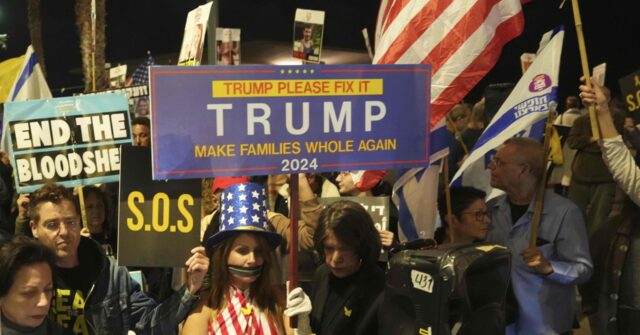On a recent Tuesday, a group of Israeli families whose loved ones are held hostage in Gaza held a press conference in Tel Aviv, expressing their deep concern over the government’s handling of negotiations for their release. The families emphasized the need for a comprehensive agreement that ensures the freedom of all 100 captives rather than piecemeal releases. The pressing gravity of their message underscored the emotional turmoil they’ve faced and the belief that every life matters, calling for urgent action to alleviate their plight.
The backdrop of this press conference coincided with rising speculation regarding a potential deal involving hostages and a ceasefire agreement in the region. It was reported that Palestinian Authority President Mahmoud Abbas was summoned to meetings in Cairo, where Israeli Prime Minister Benjamin Netanyahu was also rumored to be heading. Although Netanyahu made an appearance at Mount Hermon in Syria, reports indicated that he might still proceed to Cairo to finalize negotiations concerning the hostages, sparking hope for a resolution.
Among those who spoke at the conference was Ilana Gritzewsky, a former hostage who highlighted the harrowing reality that her partner, Matan Zangauker, continues to face. With her powerful testimony, she implored the government to abandon political games and immediately commit to securing a comprehensive deal. She emphasized that every day that passes is a day filled with anguish for the families, and a partial deal would only serve to deepen the wounds within Israeli society.
Former hostage Meirav Tal echoed similar sentiments, drawing attention to the moral implications of leaving any hostages behind. Tal’s own partner was tragically killed during Hamas’s brutal attack on October 7, 2023. She criticized the idea of a partial hostage deal, framing it as a significant ethical defeat for Israel; one that would linger and potentially destabilize the nation. This strong emotional appeal highlighted the tremendous pressures and ethical dilemmas surrounding the negotiations.
In the background, U.S. involvement in the hostage negotiations has brought up varying proposals, including staged releases of hostages, though many families voiced concerns over the lack of guarantees for the full return of captives. International dynamics appeared to shift in favor of negotiations due to several developments. President-elect Donald Trump explicitly stated that Hamas would face serious consequences if hostages remained unreleased by his inauguration, which signaled a broader international stance aimed at pressing for action.
The week progressed with growing optimism surrounding the hostage situation, underscored by meaningful gestures such as the appearance of a sky ribbon signifying the movement for hostages. Despite the complexities and heart-wrenching realities faced by the families, the combination of international pressure, political maneuvering, and public sentiment presented a glimmer of hope for a resolution, with calls for an all-inclusive approach to securing the release of the hostages resonating strongly among the families and supporters alike.

